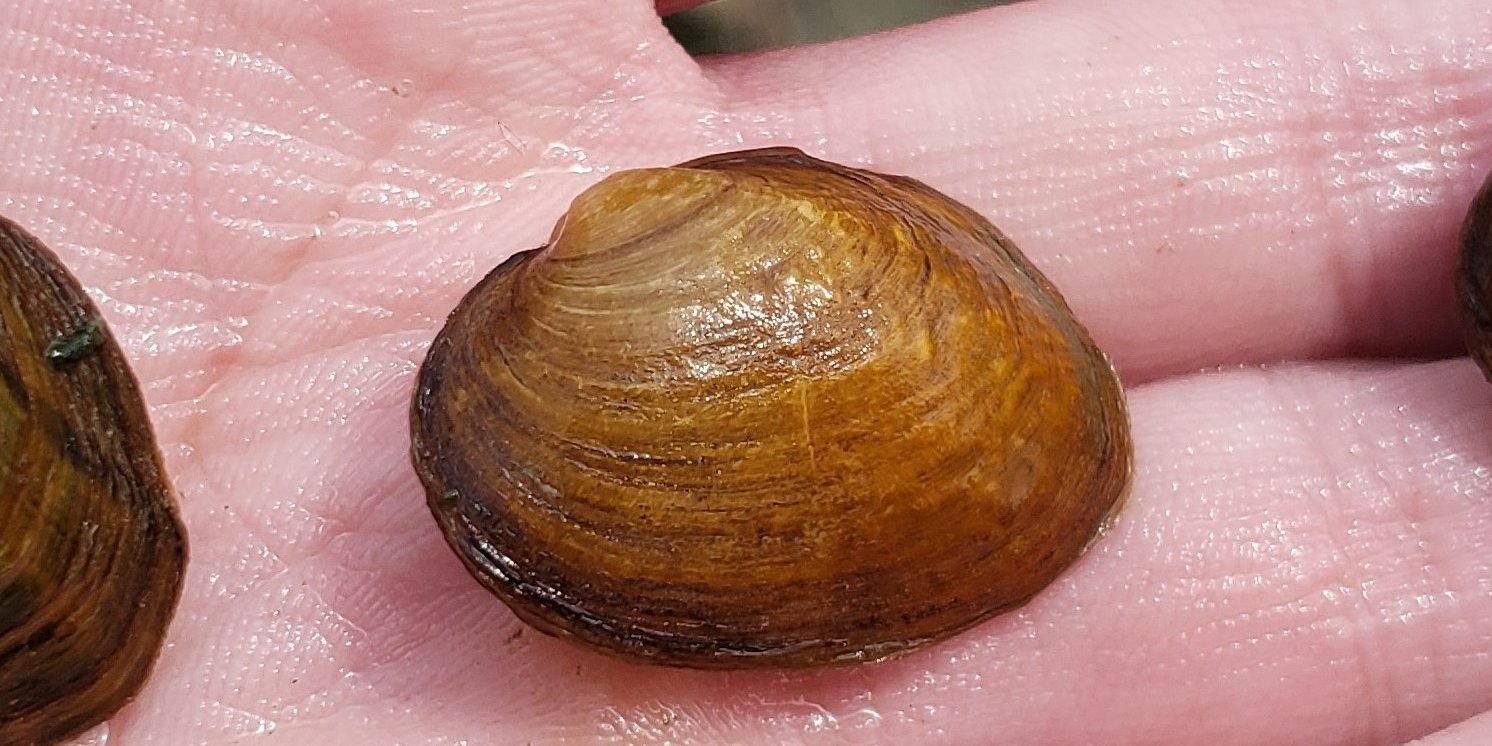False Spike
The False Spike is a medium-sized freshwater mussel that is native to central Texas. The mussel was thought be extinct before being rediscovered in 2011 on the Guadalupe River near Gonzales, Texas. In September of 2021, the United States Fish and Wildlife Service (USFWS) proposed the False Spike mussel for listing as endangered under the Endangered Species Act (ESA) and designated critical habitat in the Guadalupe River Basin. In June 2024, the USFWS officially listed this species as endangered. The designated critical habitat identified for this species falls within the covered area of the Guadalupe River HCP.
Common Name:
False Spike
Scientific Name:
Fusconaia mitchelli
Federal Endangered Species Act Status:
Endangered
State of Texas Species Conservation Status:
Threatened
Distribution:
Gonzales, DeWitt, and Victoria counties
Physical Description:
The False Spike is an elongated rhomboidally shaped mussel that is commonly yellow to brown or black in color and often has green lines that travel from the hinge line to the outer edges (Howells 1996).
Life History:
The False Spike has an estimated life span of at least 15 years. (Howells 2010d). The mussels begin holding onto mature glochidia (larval stage of mussels) shortly after spawning between March and June (Dudding. 2020). The mussels are short-term brooders, and release glochidia shortly after they mature, which subsequently attach to the gills of Red and Blacktail shiner fish hosts (Dudding 2018). The attached glochidia will transform into juvenile mussels after about a month and fall onto the substrate of the waterbody where they will burrow for protection and continue development into adult mussels.
Habitat and Diet:
False Spike adults are filter feeders that siphon plankton, organic matter and small organisms out of the water and sediment. The adults are found in riffles and runs of large rivers and creeks with moderate to slow moving water and gravel-cobble substrates (USFWS SSA 2018).
References:
Dudding, J., Hart, M., Morton, J., Robertson, C., Conway, K., Lopez, R., and Randklev, C. (2018). Host fish association for two highly imperiled mussel species from the southwestern United States: Fusconaia mitchelli (false spike) and Cyclonaias petrina (Texas Pimpleback). Thesis submitted to Texas A&M University. College Station, Texas.
Dudding, J. Hart, M., Khan, J.M., Robertson, C.R., Lopez, R., and Randklev, C.R. (2020). Reproductive life history of 2 imperiled and 1 widely distributed freshwater mussel species from the southwestern United States. Freshwater Science, 39(1).
Howells, R.G., Neck, R.W.. and Murray, H.D. (1996). Freshwater Mussels of Texas. Texas Parks and Wildlife Department Inland Fisheries Division. Austin, Texas.
Randklev, C.R., Johnson, M.S., Tsakiris, E.T., Oetker, S.R., Roe, K.J., McMurray, S., Robertson, C.R., Groce, J., and Wilkins, N. (2011). First account of a living population of False Spike, Quadrula mitchelli (Bivalvia: Unionidae), in the Guadalupe River, Texas. Ellipsaria 13(4), 19
United States Fish and Wildlife Service. (2018). Species Status Assessment Report for the Central Texas Mussels: False Spike (Fusconaia mitchelli), Texas Fatmucket (Lampsilis bracteata), Texas Fawnsfoot (Truncilla macrodon), Texas Pimpleback (Cyclonaias petrina), Guadalupe Fatmucket (Lampsilis sp. Cf. bractceata), and Guadalupe orb (Cyclonaias necki). Albuquerque, New Mexico.





